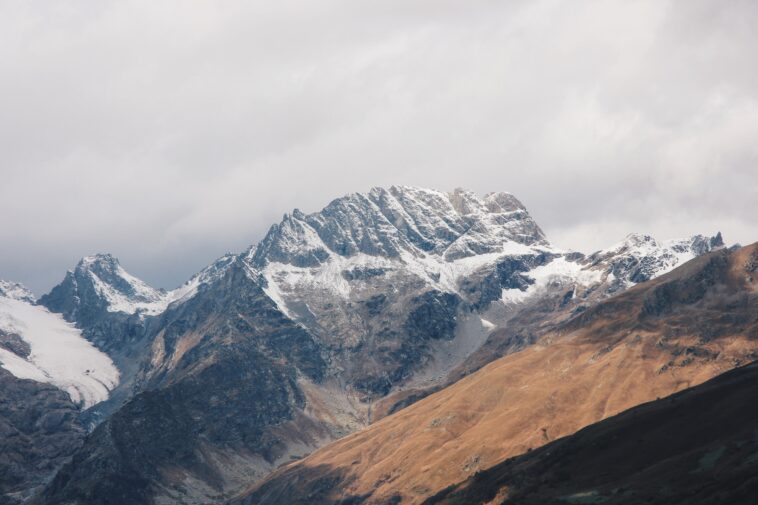Mount Elbrus stands as a magnificent dormant volcano, situated in the western part of the majestic Caucasus mountain range. This natural wonder finds its home within the territories of Kabardino-Balkaria and Karachay–Cherkessia in Russia. Its proximity to the Georgia border adds to its geopolitical significance. The location of Mount Elbrus is not just a point on the map but a confluence of natural beauty and cultural diversity.
Historical and Cultural Significance
The history of Mount Elbrus is as rich as its geographical prominence. This region has been a witness to various historical events and cultural transformations. Over the centuries, Mount Elbrus has been a silent spectator to the rise and fall of empires, the evolution of cultures, and the never-ending pursuit of human exploration. It is not just a mountain; it is a symbol of endurance and timelessness.
Geographical Features
Mount Elbrus is renowned for its twin peaks, each forming a distinct summit. These peaks are remnants of its volcanic past, making it a unique formation in the Caucasus range. The eastern summit stands at a remarkable height, slightly lower than its western counterpart, which claims the title of the highest peak in both the Caucasus and Russia.
Climate and Environment
The climate around Mount Elbrus is as varied as its terrain. The lower slopes of the mountain are embraced by a moderate climate, which gradually transitions to colder, harsher conditions as one ascends. This environmental gradient creates diverse ecosystems, supporting a wide range of flora and fauna. The mountain’s ecology is a delicate balance, reflecting the broader environmental dynamics of the Caucasus region.
Mountaineering and Recreation
Mount Elbrus is not only a natural spectacle but also a magnet for adventure enthusiasts. It is a popular destination for mountaineers from around the globe, offering a challenging yet rewarding climbing experience. The ascent to its summit is more than a physical journey; it’s a venture into the realm of personal achievement and natural wonder.
Economic and Social Impact
The presence of Mount Elbrus has a significant impact on the local economy and society. It drives tourism, fostering economic growth in the surrounding regions. The mountain also plays a vital role in the cultural identity of the local communities, embodying their connection to nature and their ancestral heritage.
Preservation and Challenges
Mount Elbrus faces several environmental and ecological challenges. Climate change, increasing tourism, and related activities pose threats to its pristine environment. Efforts are underway to preserve this natural wonder, ensuring it remains a source of awe and inspiration for future generations.
Conclusion
Mount Elbrus, with its towering peaks and dormant volcanic structure, is more than just a geographic landmark. It’s a symbol of natural beauty, cultural heritage, and human aspiration. Standing at the crossroads of Europe and Asia, it continues to inspire and challenge those who seek to uncover the mysteries of nature and the limits of human endeavor.
Key Takeaways:
- Geographical Majesty: Mount Elbrus is not only the highest peak in Russia but also a testament to the breathtaking beauty of the Caucasus range.
- Cultural Beacon: The mountain is deeply woven into the cultural fabric of the local communities, reflecting their history and identity.
- Environmental Significance: It serves as a crucial ecological zone, supporting diverse life forms and ecosystems.
- Mountaineering Hub: Mount Elbrus is a cherished destination for climbers worldwide, offering both challenge and beauty.
- Conservation Efforts: The need for preserving this natural wonder is paramount, considering the environmental threats it faces.
Mount Elbrus stands as a majestic blend of natural splendor, cultural significance, and adventurous allure, making it a jewel in the crown of the Caucasus mountains.





